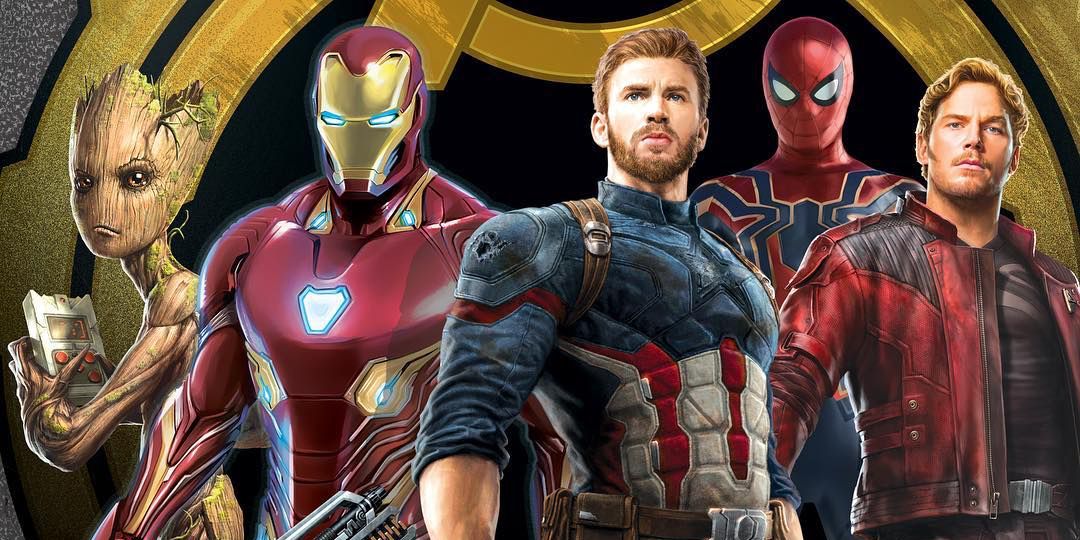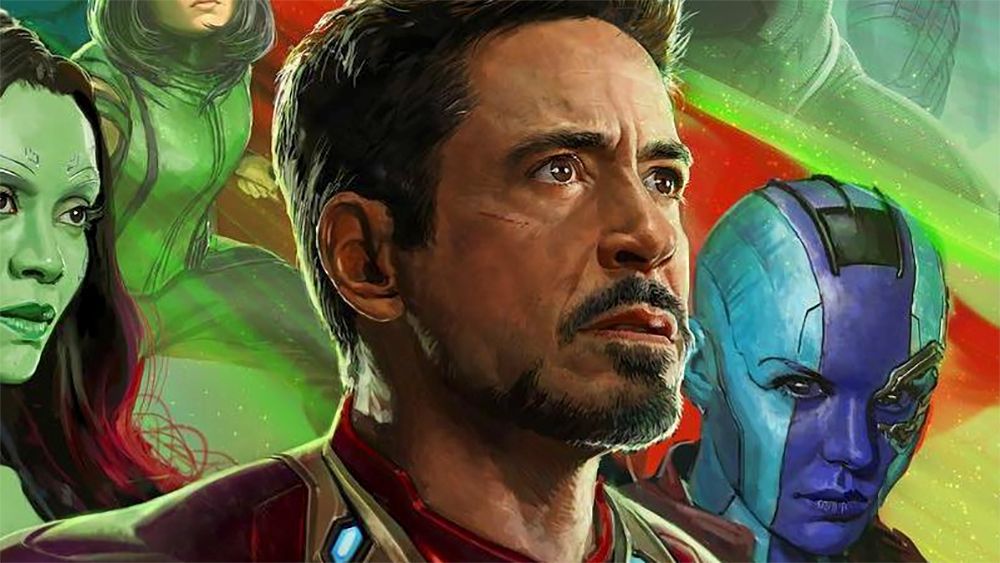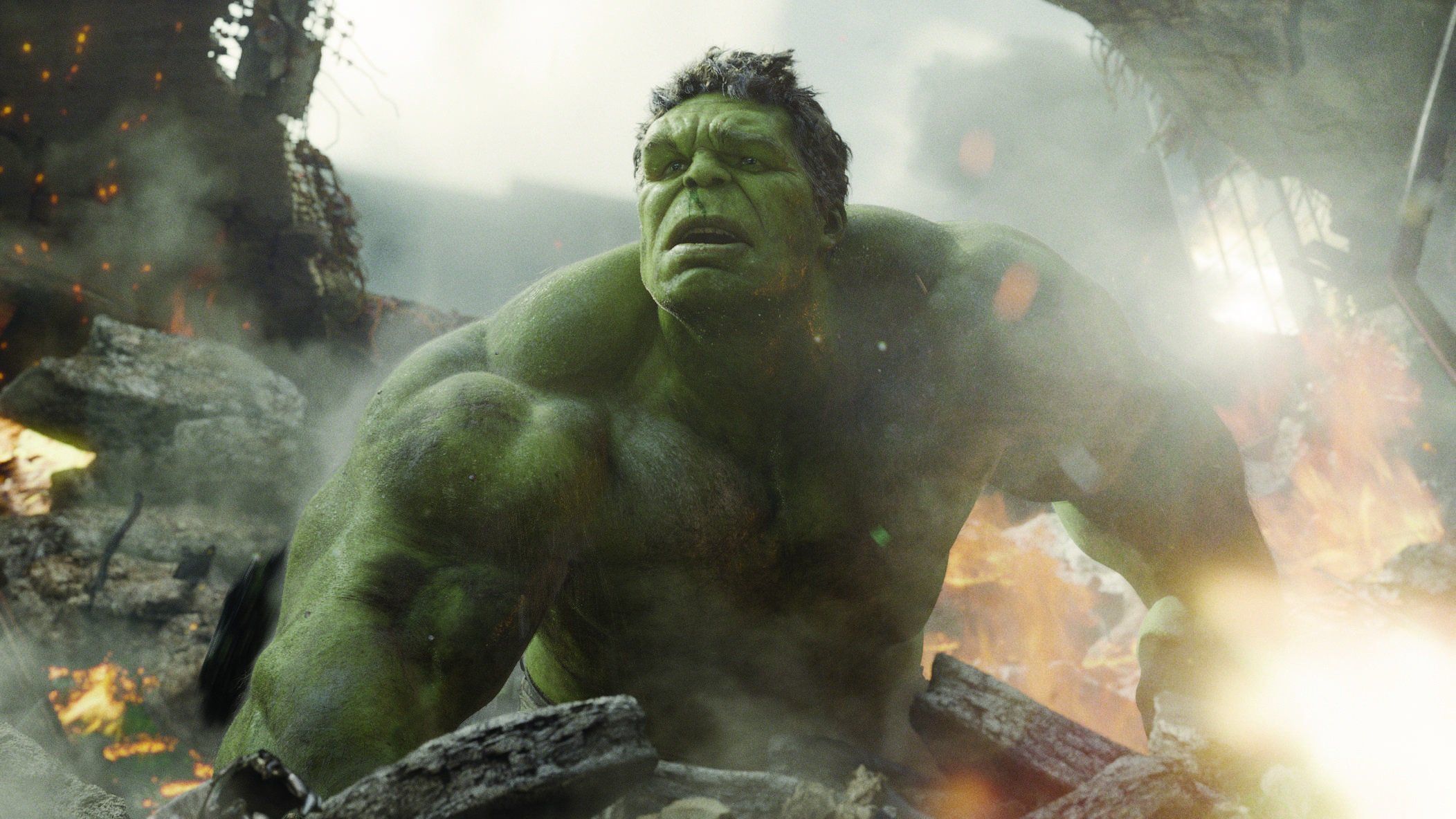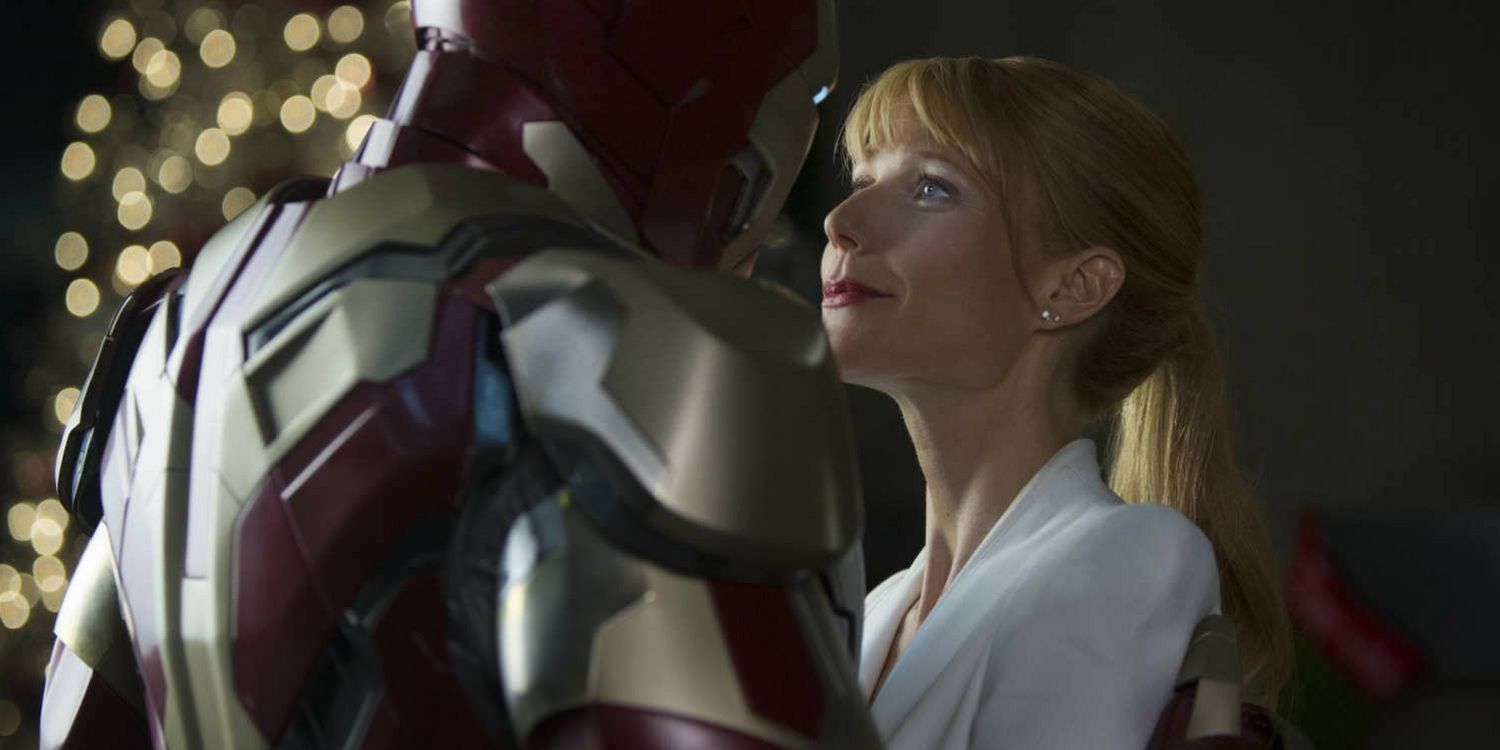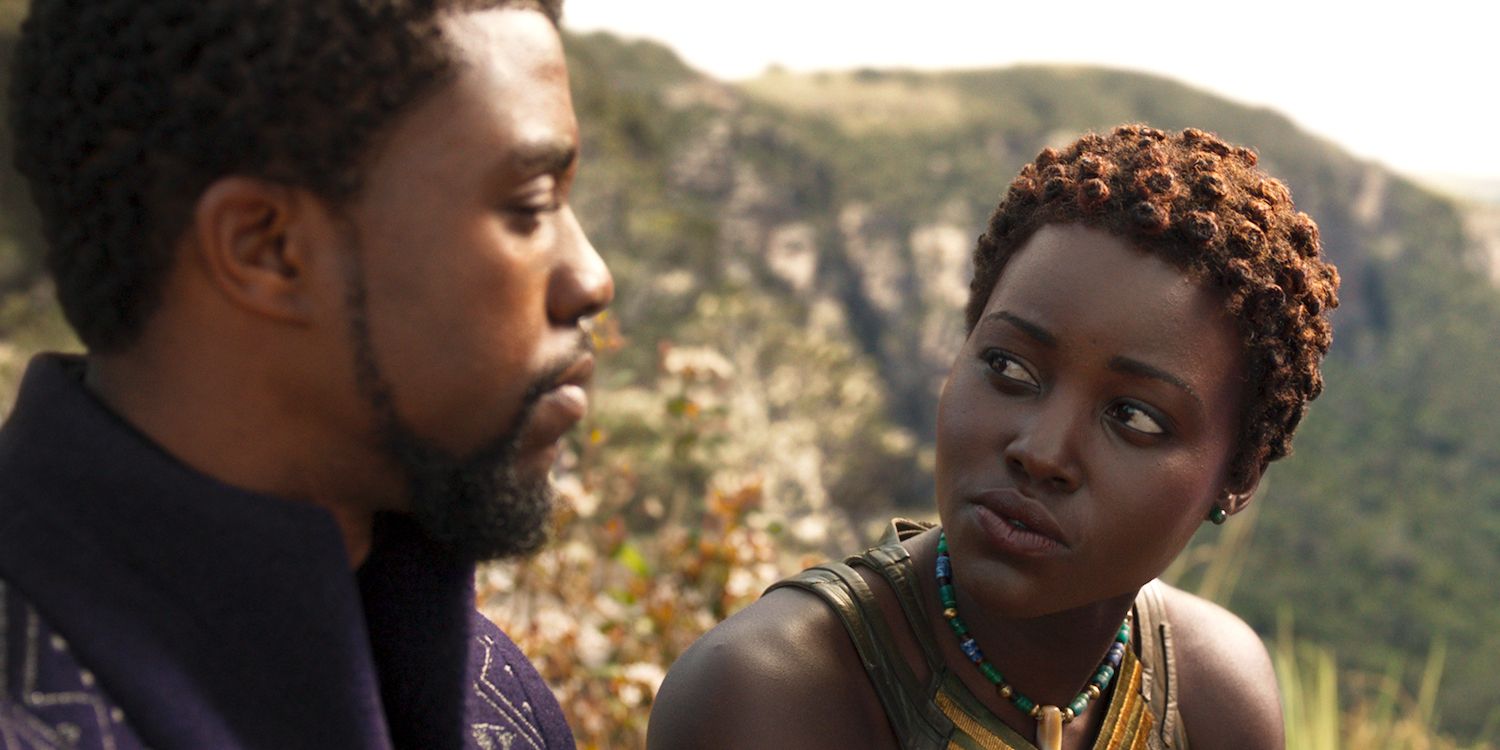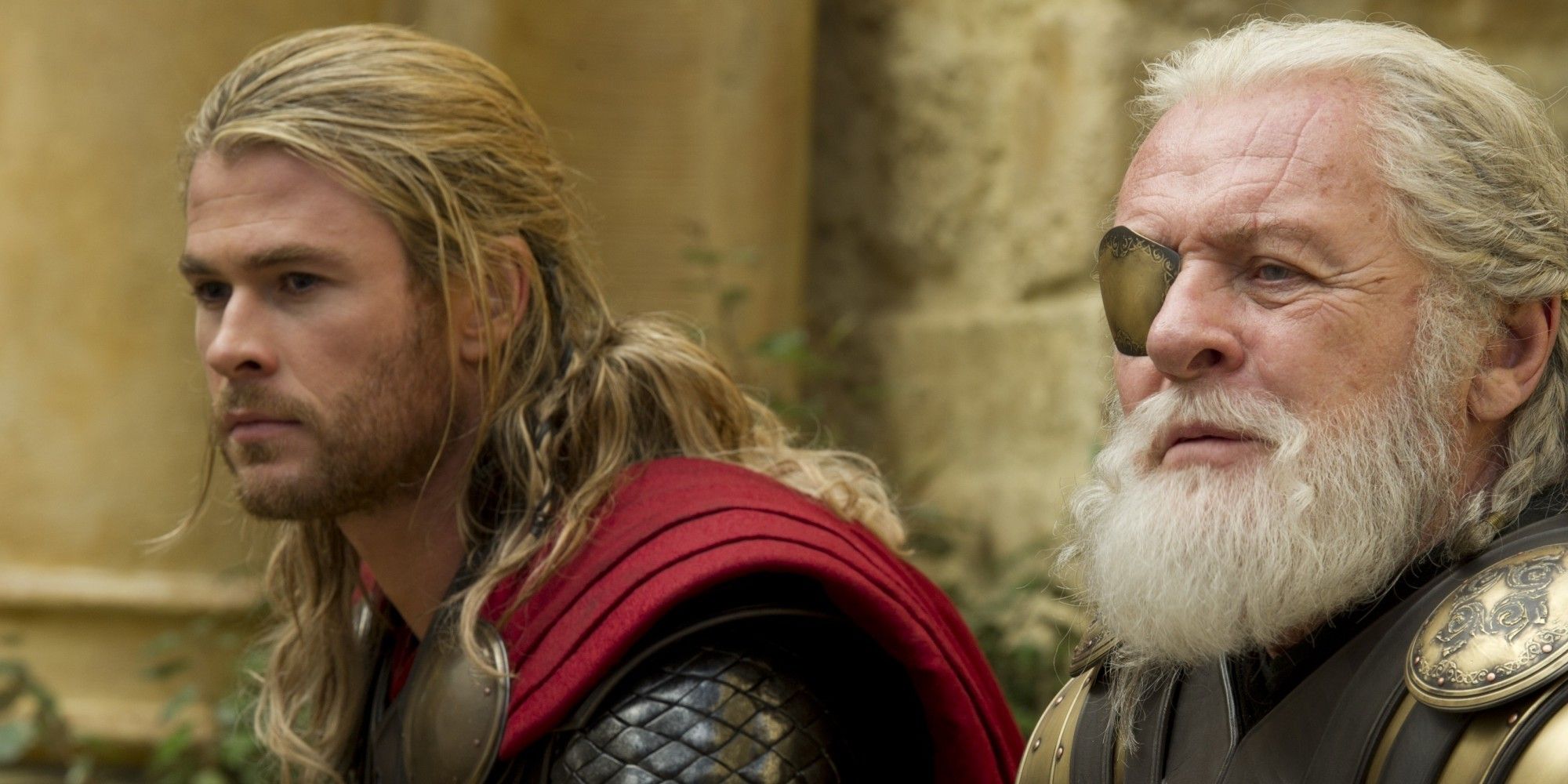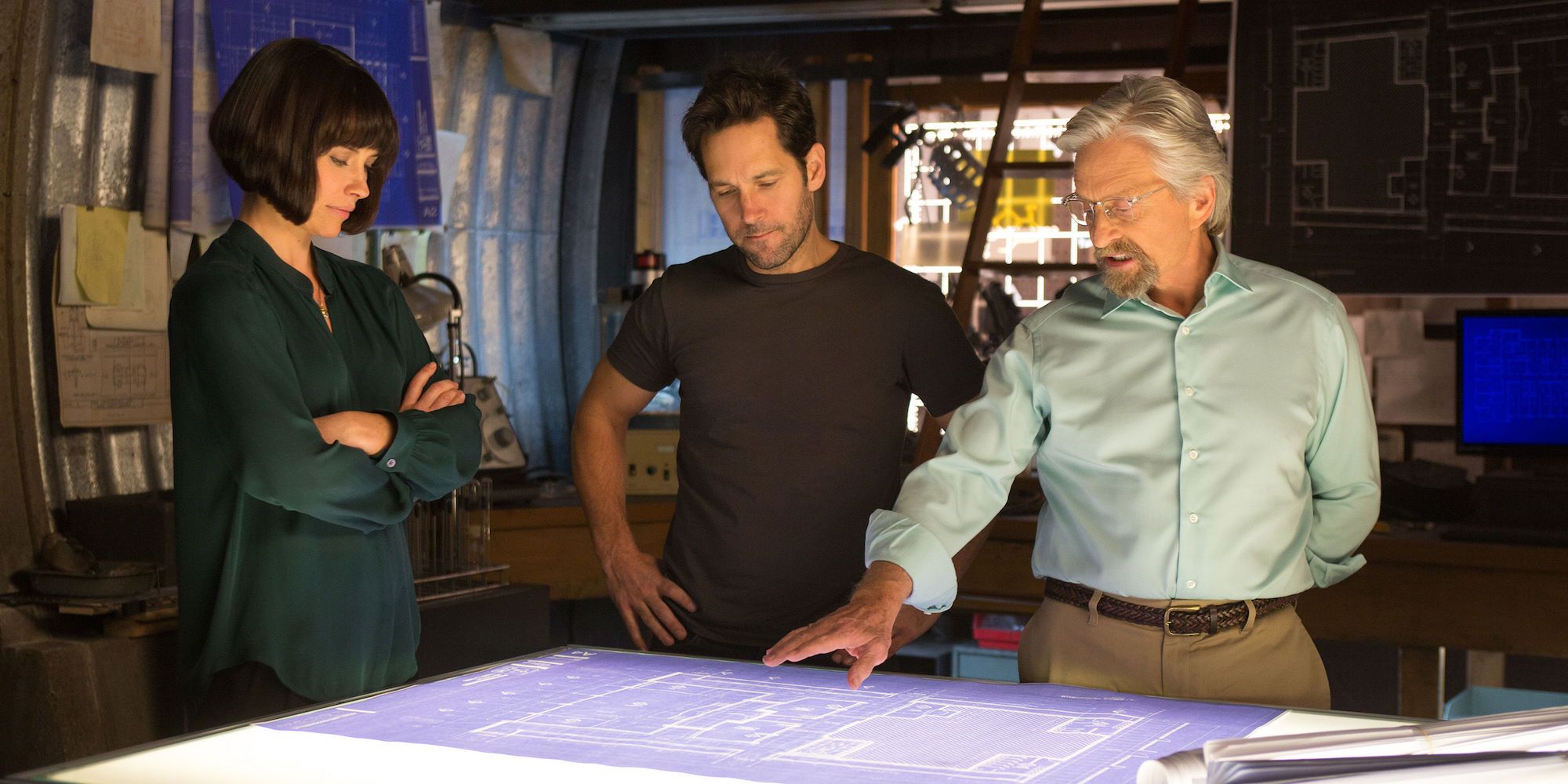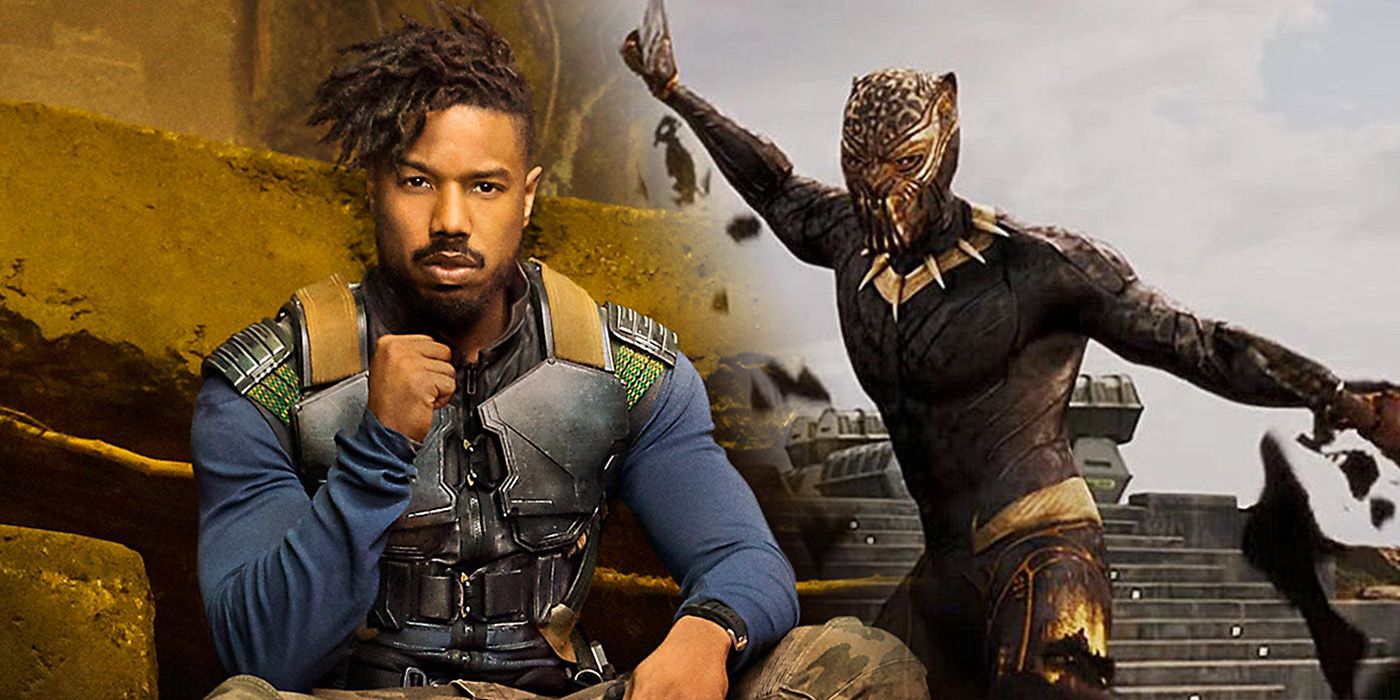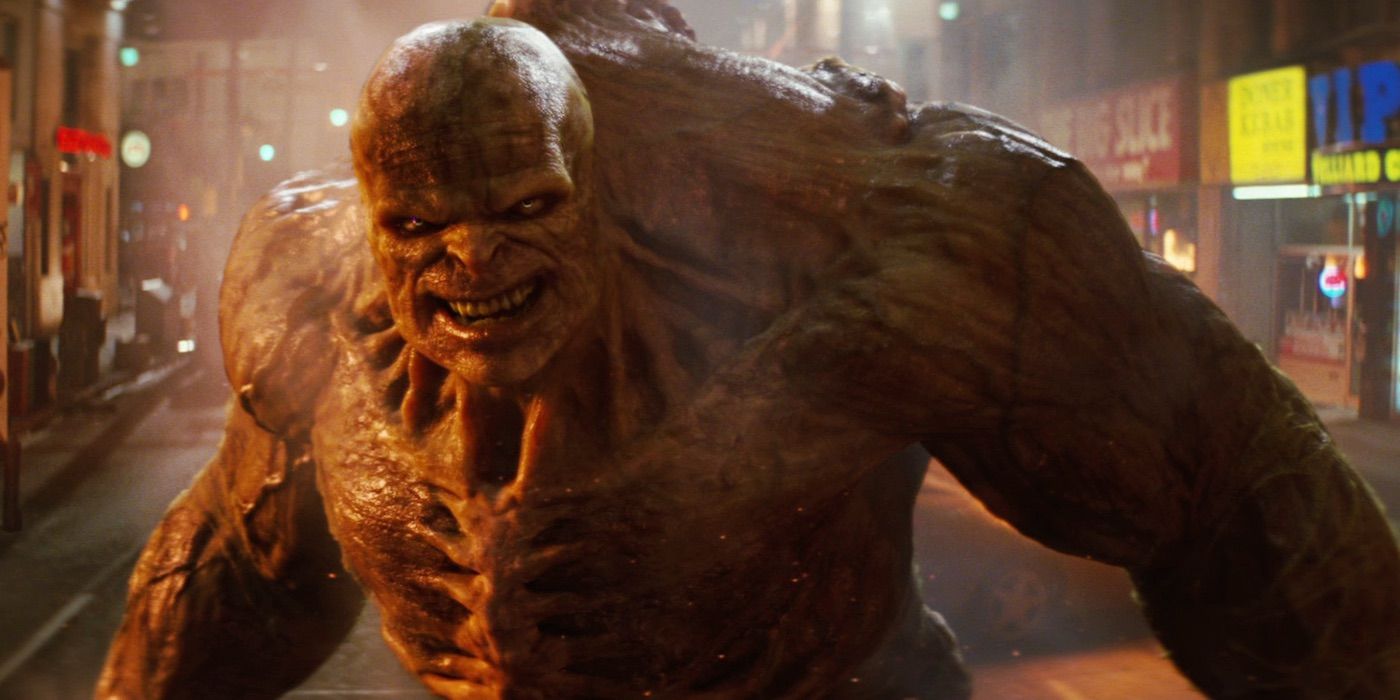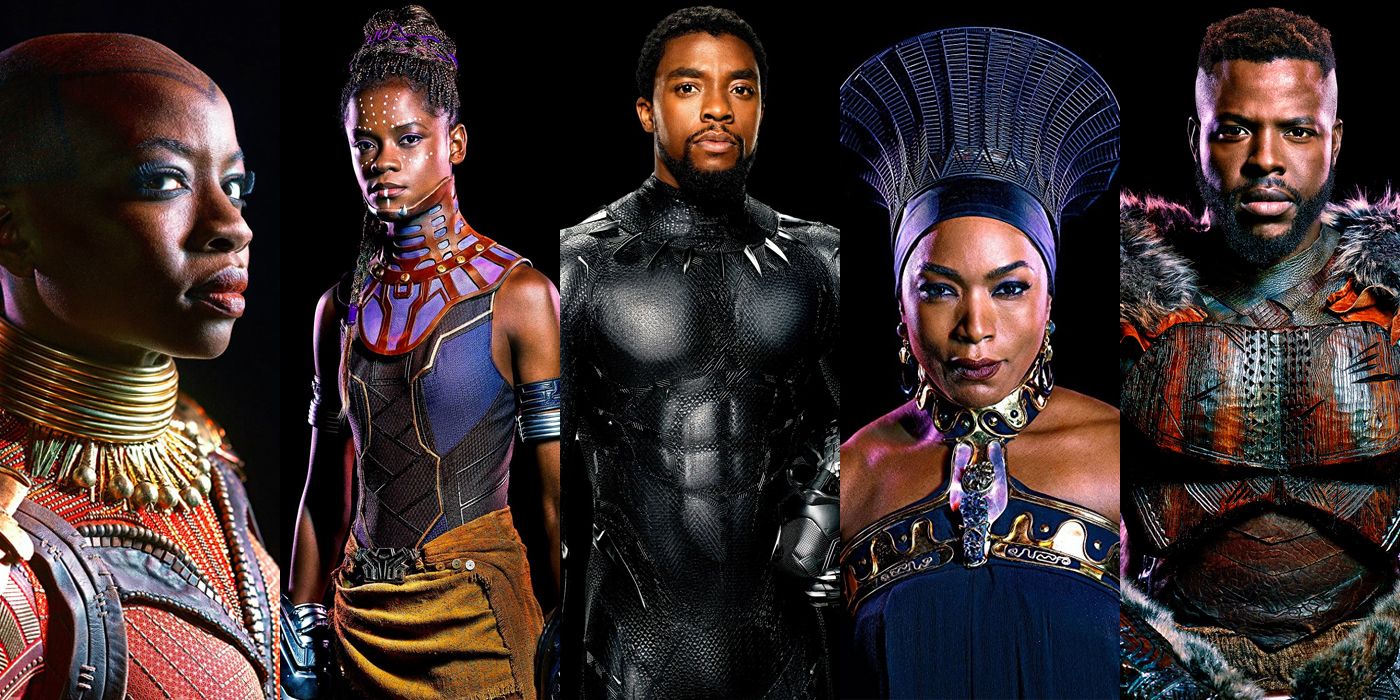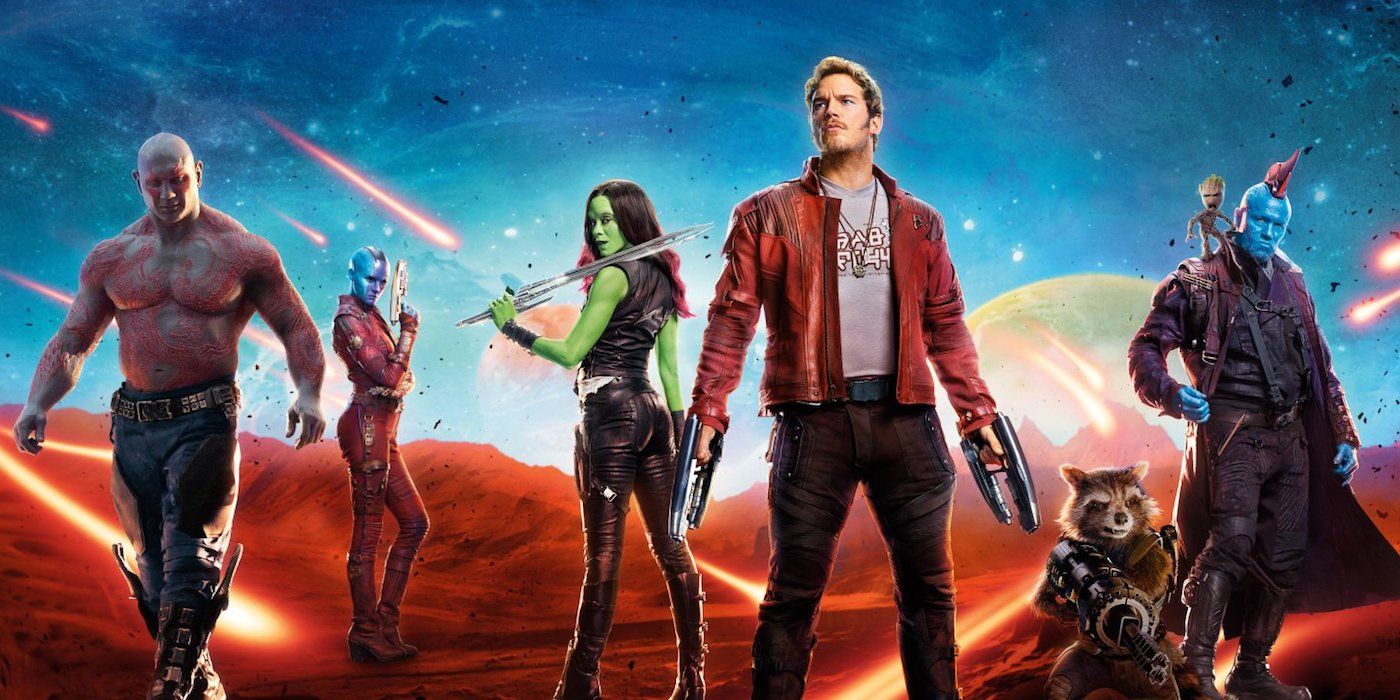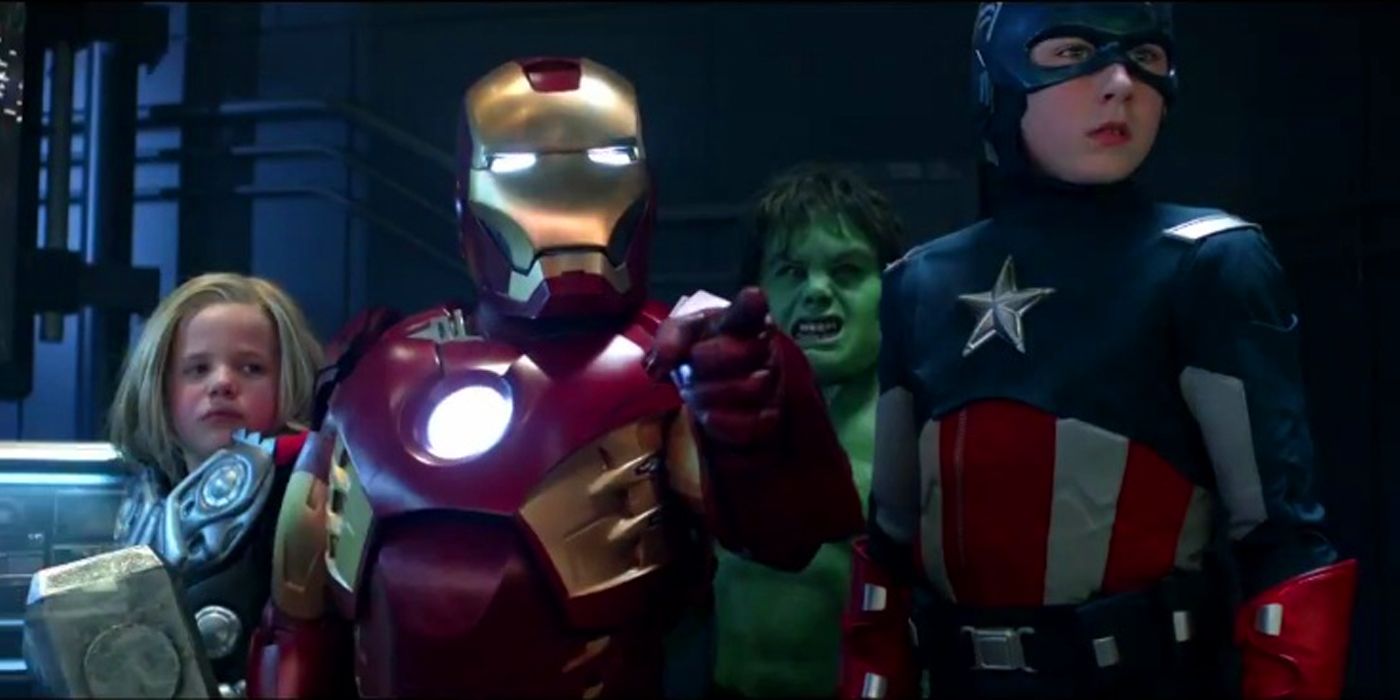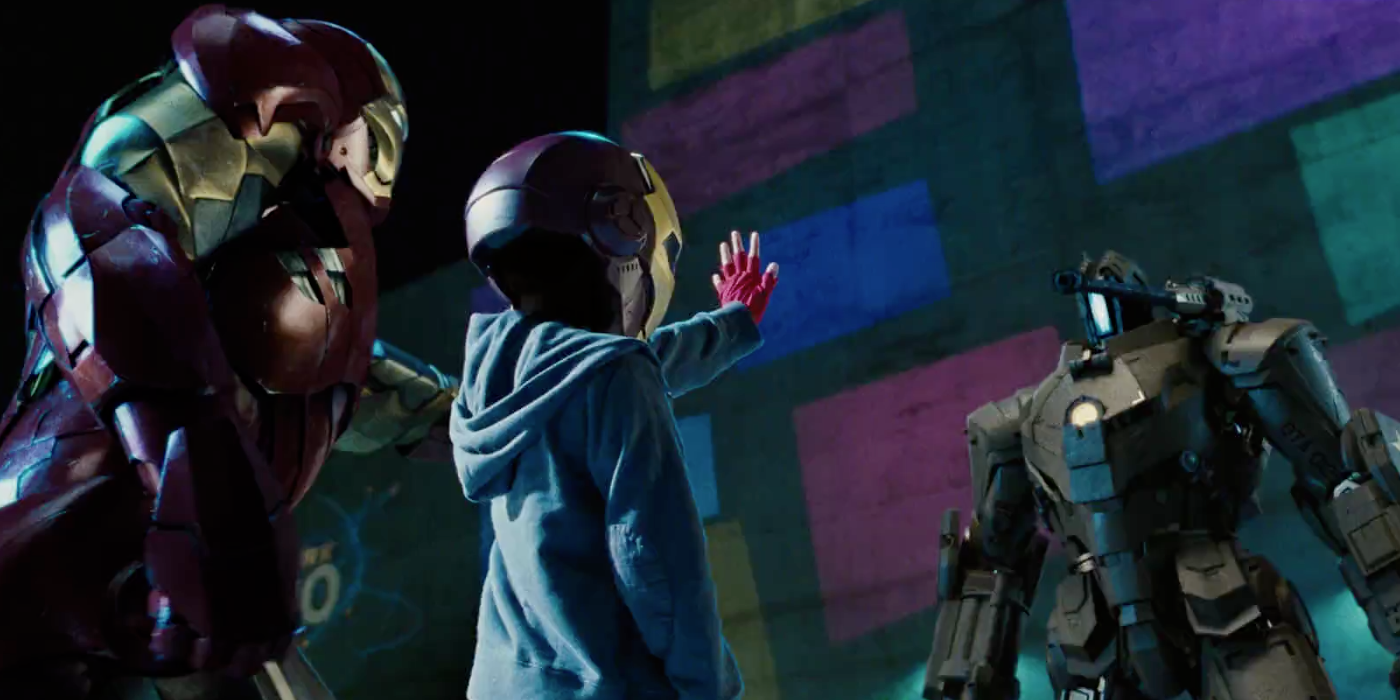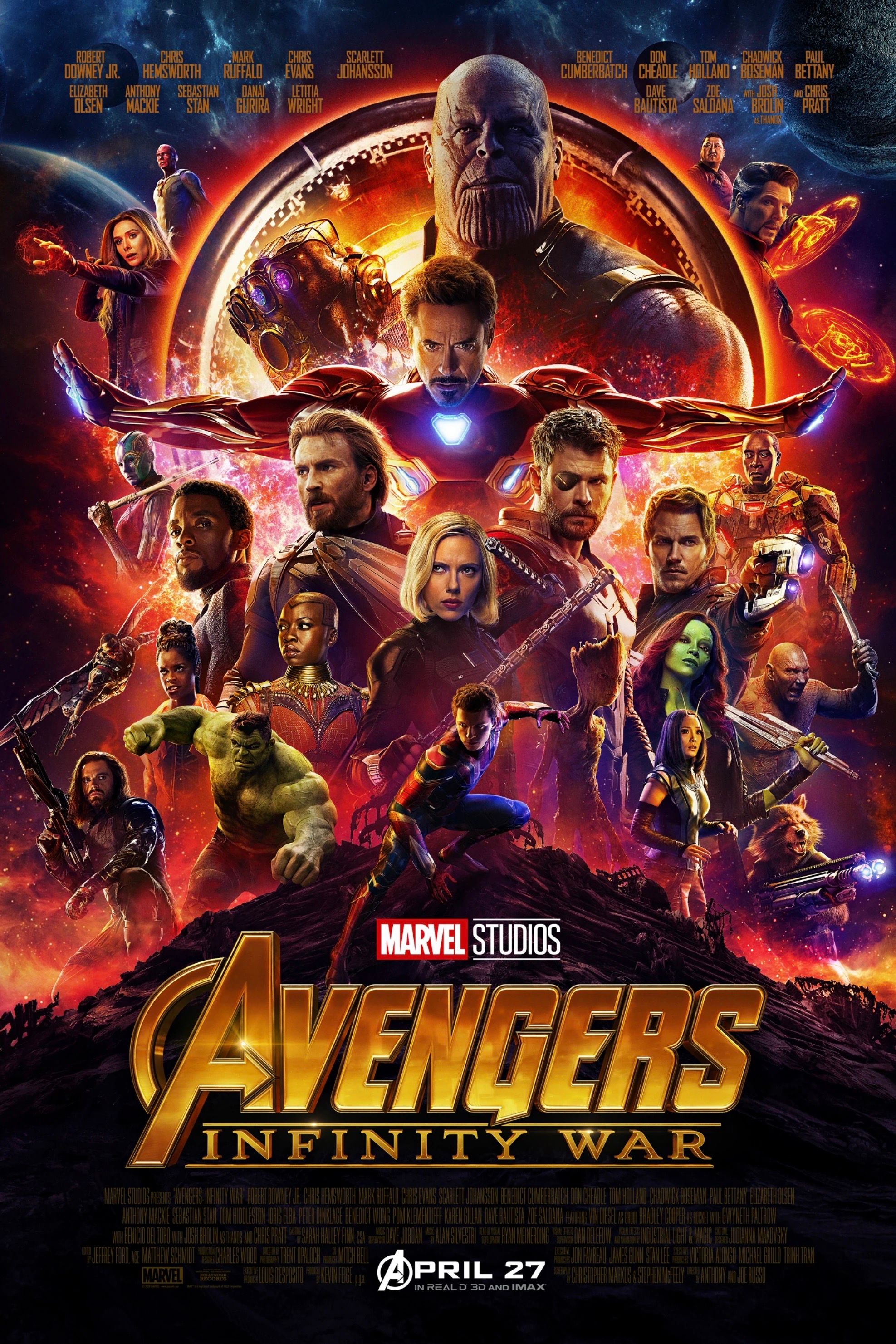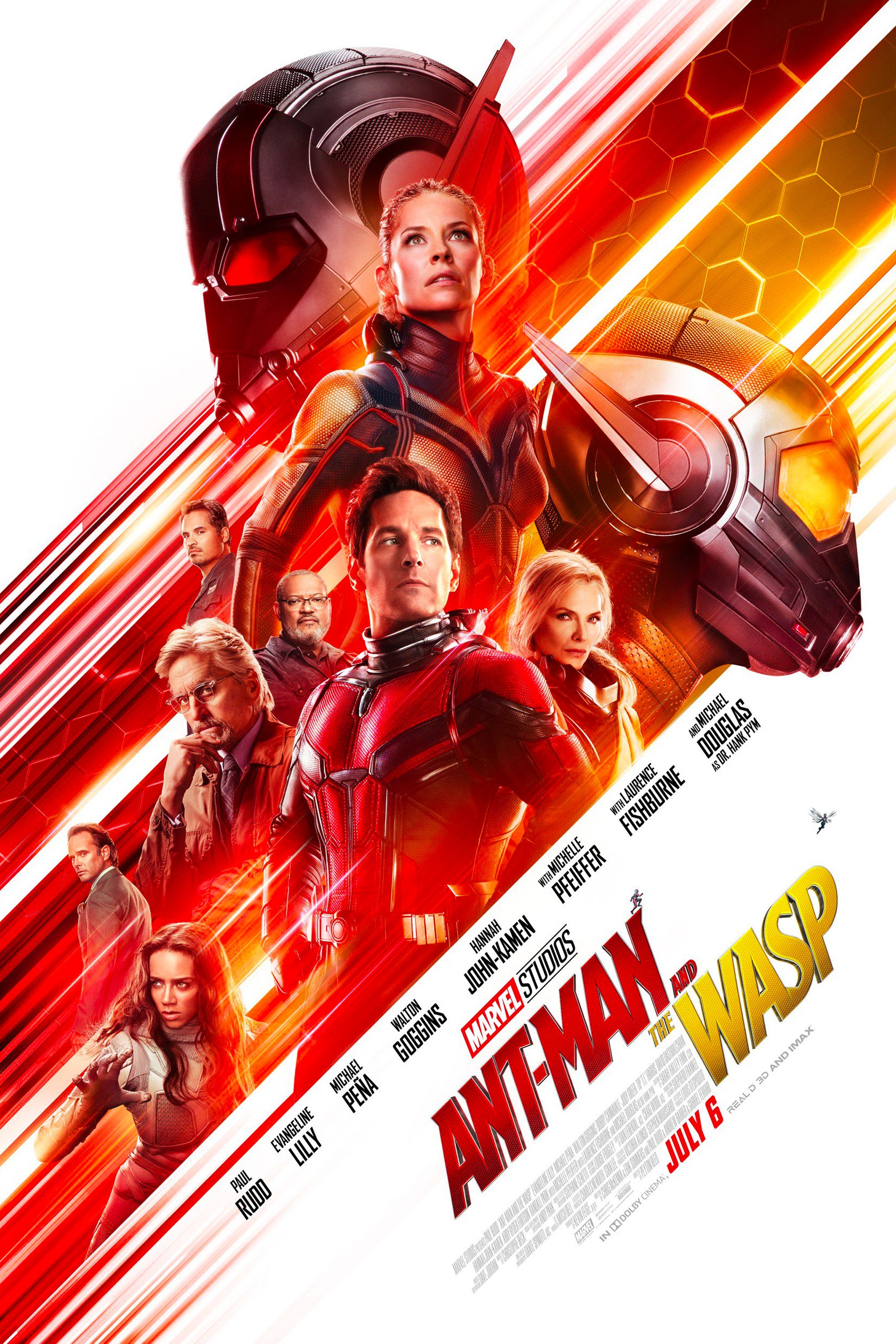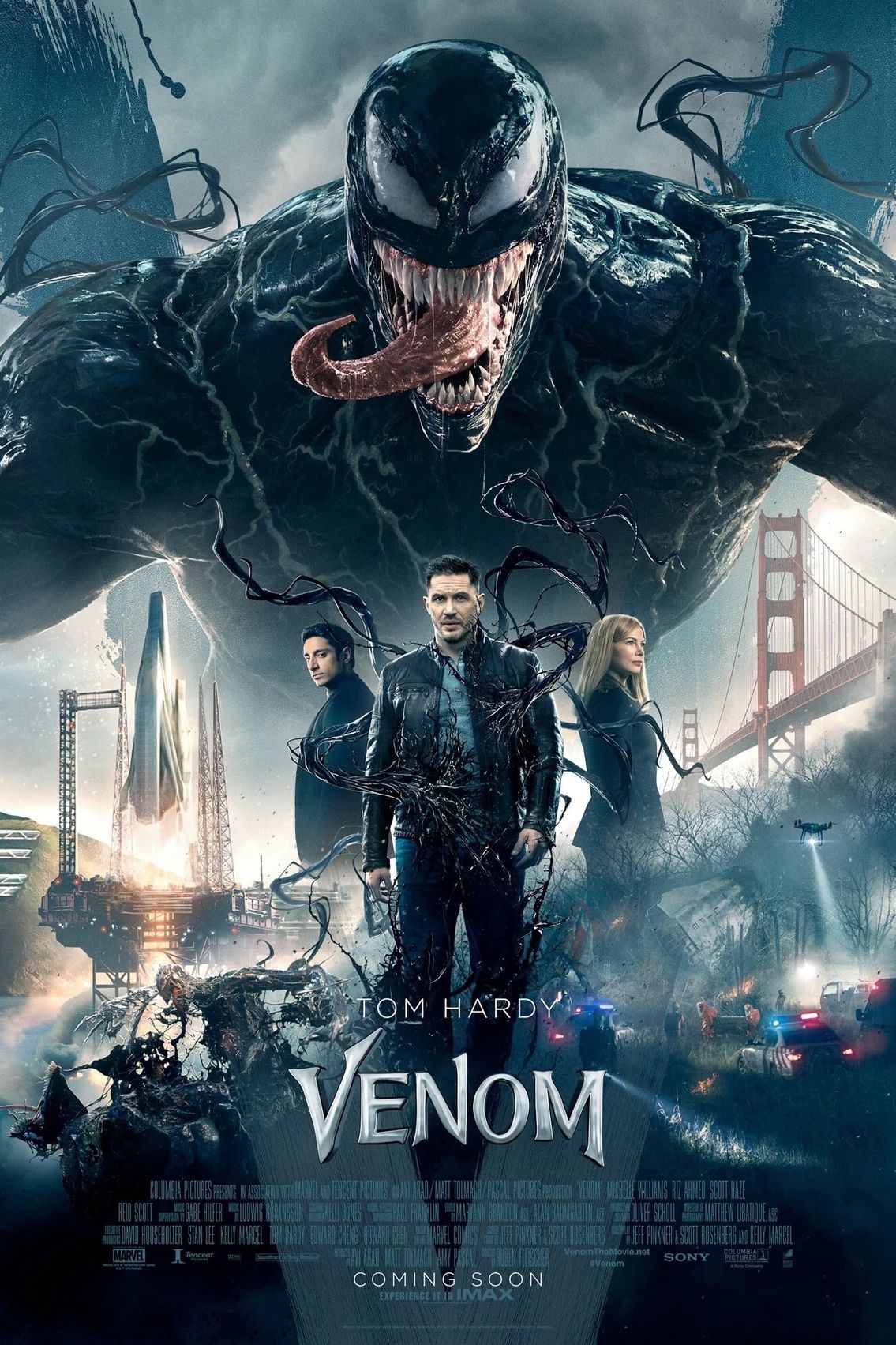Once Avengers: Infinity War hits theaters, the so-called Marvel Cinematic Universe will encompass 19 feature films (with five more already in production or pre-production), two network television series, six Netflix Original series, and multiple adjacent cable projects in development. That's a staggering amount of single-continuity storytelling for a single decade's worth of production - and it still doesn't account for what could be forthcoming if and when the re-integration of the formerly Fox-owned X-Men, Fantastic Four and Silver Surfer properties takes actual shape or if (as many suspect) Sony's Venom and Silver & Black spin-offs turn out to be more "official" than anyone will admit at this point.With any storytelling venture of this scale, there will inevitably be claims that the volume of available stories to be told is perilously finite, and indeed the Marvel movies face such criticisms regularly: Stories that are "formulaic," heroes who overly resemble one another, villains whose motives are said to be "interchangeable" and accusations of individual films/franchises becoming difficult to distinguish. Is Thor: Ragnarok too much like a Guardians of The Galaxy movie? Is Doctor Strange simply "Magic Iron Man?" If anyone had bothered to watch The Inhumans, would similarities have been noted in Black Panther?Related: Every Marvel Cinematic Universe Movie Released So FarWith such questions in mind (and answers, hopefully, in the unfurling text), here are six intriguingly specific things that almost all of the MCU superheroes - be they power-armored playboys, blind attorneys, spider-powered teenagers, unfrozen propaganda-performers or Afrofuturist royalty - all seem to have in common (and no, "keeps bumping into Stan Lee" isn't one of them)...This Page: An Innate Strength That is Also Their Ultimate Weakness
1. AN INNATE STRENGTH THAT IS ALSO THEIR ULTIMATE WEAKNESS
Marvel heroes get their powers from a variety of sources: Science, magic, hard work, random chance, destiny, government assignment, inheritance - you name it, someone got their powers and/or abilities from it. Some ask for it, some don't, some regret it, and some never knew their purpose until they found it. But those powers are almost always secondary to some innate, immutable quality that they possess even when stripped of their special abilities or otherwise impeded from the "super" part of being a "superhero." Steve Rogers has his unshakeable moral rectitude, Tony Stark has his intelligence, Doctor Strange has his tenacity, T'Challa has his commitment to his land and people, Peter Parker never gives up, Thor is all courage.
However, just as those qualities serve as the foundation of their broader abilities as superhuman do-gooders, in almost all cases they are also inextricably bound to each individual hero's core character flaw. Captain America will always do what he believes is right, which ends up meaning that he's at once stubborn and self-sacrificing to the point of outright masochism. Iron Man's mind operates on a level far above most other people, which means he's often making decisions without concern for those "beneath" him. Black Panther always has his guard up - not always a good idea. Spider-Man can't stop even when he really (really!) should. Thor is also all hubris. See also: Star-Lord, Rocket Raccoon, Ant-Man and even Netflix's Jessica Jones survive in part via a glib detachment that alienates those around them. And, of course, there's The Incredible Hulk, whose actual power is turning into a destructive rage-monster he can barely control.
To be sure, this is a pretty common literary device for characterization: We all contain good and bad, so whatever makes you "you" logically accounts for both your best and worst qualities. But not every story about a hero centers this specific dichotomy as consistently as the Marvel Cinematic Universe does (i.e. James Bond's imperious misogyny being the source of both his swagger and his spartan loneliness doesn't always factor into the main plot/theme of a given 007 feature) for almost all of its films: All three Captain America movies are fundamentally about an impossibly decent man suffering by being unable to bend to an indecent world. All three Iron Man movies are about Tony Stark's genius-vision having to thwart something unleashed by Tony Stark's genius-arrogance.
Related: Black Panther Moves The MCU Out Of Iron Man's Shadow
Why does Marvel Studios love this trope so much? Largely, because it keeps working. For all the talk of Marvel as a production-machine that thrives on formula and repeating motifs, the fact is certain storylines and character arcs become "formula" in the first place because they work more often than they don't. These are big, larger than life, often very strange personalities to try and tell relatable stories with, so ideas that an audience can be counted on to connect with in the broad strokes regardless of context are the ever-present priority: No one really knows what it's like to be the King of Wakanda, but almost everyone can relate to the frustration of something vital to one aspect of their life being a detriment to another.
There is, of course, another reason; one related to the bigger meta-narrative that unifies almost the entire MCU to this point on a thematic level and is in fact "the other reason" for all the other entries in this list. But we'll get to that in #6. For now...
2. AN OVERQUALIFIED GIRLFRIEND (WHO IS ALSO, WEIRDLY, A SURROGATE MOM)
Are you a good guy who could nonetheless stand to be a "good-er" guy? Do you have a female friend or colleague who may or may not also be your former, current or prospective love-interest? Is she smarter than you? More mature and/or experienced? Literally or figuratively your superior? Is she, perhaps, in many ways substantively more qualified to do either your superhero job, your civilian job, or both of your jobs than you are? Despite this, is she overwhelmingly nurturing and supportive of your development into a True Hero to an all-but explicitly maternal degree? Have you developed a potent, guilt-stricken inferiority complex about this that becomes a big part of what drives you to superhero self-actualization? Well, then it is very possible that you are, in fact, a Marvel Cinematic Universe superhero (if all of the above apply and you also happen to be a white guy named Chris, you may want to double-check with Kevin Feige that he doesn't owe you a bunch of paychecks...)
Descending in an unbroken lineage from Iron Man's Pepper Potts (who's better at running Stark Industries than Stark is and, while also being his "grown-up" girlfriend, expresses her love via a mix of nurture and discipline that can only accurately be described in terms of surrogate-mothering); Peggy Carter, Jane Foster, Hope Van Dyne, Christine Palmer, Gamora, Nakia and many others all have in common the occasionally thankless task of providing emotional (though not always explicitly "romantic" support) to male heroes whose jobs they could probably do as well or better but aren't because... reasons.
Related: Tessa Thompson Says Marvel Is Interested' In An All-Female Movie
Agent Carter never stops pushing Captain America to do better. Jane humbles The Mighty Thor as even Odin can't. Dr. Palmer already has the humility Doctor Strange needs an entire magic school to learn. T'Challa has to lose and regain his life, powers, kingdom and mantle of Black Panther itself in order to adopt the ideological view that Nakia is already spelling out for him as early as Act I. That Hope clearly should've been the new Ant-(Wo)Man instead of Scott Lang is a running joke and central plot element in their film itself, while even Gamora - easily the least mature or "together" woman in this particular lineup - is at least functioning at the emotional level of a teenager compared to Peter "Star-Lord" Quill, whose personality is fixed all-but permanently around age 7. Marvel Men desire girlfriends but need moms, and their stories tend to provide them in the same character... though, thankfully, thus far only in the metaphorical/surrogate sense.
On the other hand, is there a modern filmmaking entity that loves the Oedipus Complex as a character/relationship trait more than Marvel Studios? Metaphor or not, figurative starts to look increasingly literal when it becomes this overwhelmingly omnipresent: In Spider-Man: Homecoming, Peter Parker not only has two potential love-interests who spur him to heroism while also being more mature, worldly, sensible and constantly calling him out on his bad decisions (three, if you count "Karen," the female-voiced A.I. that lives in his Stark-brand Spidey-Suit that literally locks off certain weapons/abilities until he grows up into them); the film also reimagines his "official" surrogate mother-figure Aunt May - defined for 50 years of prior characterizations as an elderly grandma type - as the immortally-sexy Marissa Tomei... a change that mostly generates scenes where other characters make Peter uncomfortable by pointing out that she's "hot."
And let's not get started on Black Widow's ability to soothe The Hulk back into Bruce Banner (her would-be partner, at this point) in Age of Ultron by literally telling him bedtime stories. Bottom line: MCU heroes have "a lot to work out" about parents - see also...
3. PATERNAL REJECTION ANXIETY
If a mythic hero doesn't have "daddy issues," chances are he may not actually be all that mythic or heroic. Distant, difficult or downright demonic father figures are a thread that unites everyone from King Arthur to Hercules to Jesus Christ to Superman to Son Goku to Star-Lord. Even if there was a point where it wasn't an ironclad rule for blockbuster movie protagonists it has been ever since Luke Skywalker got some surprising news in the depths of Bespin. And as Marvel is nothing if not thorough when it comes to Freudian archetypes, it's unsurprising that the other end of the Oedipus equation plays out even more reliably than the previous one.
Related: Thor: Ragnarok's Deleted Scenes Hide Odin's Original Death
MCU Dads (and "father figures") are almost all varying levels of damaged or damaging - and the ones that aren't so actively still tend to be so indirectly by virtue of their absence. But Marvel doesn't simply lean toward patriarchs who're disappointing... mostly of them are perhaps more notably disappointed. Marvel Men are all tightly-wound bundles of wounded masculine anxiety, and what they agonize over the most is often their desperate need for approval from an older male (or "masculine-coded") mentor figure who will probably never give them enough of it. Even the very best of such characters, Captain America's "creator" Dr. Erskine, dies immediately after having granted Steve Rogers (whose real father was, of course, an abusive alcoholic) his powers - never able to tell his surrogate son that he made him proud.
But beyond that? Where there's a Marvel superhero, there's probably a literal or symbolic father/mentor withholding approval of their heroic deeds - sometimes up to the point where they're one of the villains of the piece. Tony Stark will toil forever in the shadow of his deceased father, caps off his origin story by defeating his evil "office dad" in Iron Monger, and then becomes an unofficial "bad dad" himself to Spider-Man in Homecoming. Thor's first movie (indeed, his entire multi-film journey) is about proving to Odin that he's worthy of the throne, a concern that also bedevils T'Challa in Black Panther, and is resolved in part for both men via the acceptance that their respective fathers weren't perfect either. Ant Man and The Wasp both conduct their superhero careers under the wounded curmudgeonly direction of Hank Pym. Peter Quill's already-arrested psyche is warped further by his "unusual" upbringing under Yondu. Stephen Strange may be the most emotionally-needy magic student in history not named Hermoine Granger.
And, of course, post-unfreezing, poor, sad, stoic Steve Rogers seems trapped in a self-imposed cycle of seeking out systems of authority to be The Best Son to and then face disillusionment with (the army, S.H.I.E.L.D. and eventually the entire U.S. Government as of Civil War.) "Manly tears" are the essence of emotional-storytelling in the MCU, and approval-averse dads are so often the source it even extends beyond the heroes themselves:
4. AN EVIL DOPPLEGANGER (POSSIBLY SEVERAL)
As noted in the first entry, Marvel Studios' protagonists are almost always afflicted with personal demons inversely-proportional (and directly connected) to their strongest virtues - they are, in effect, their own arch-enemies. Ironically, this has led to one of the most pervasive but also most misunderstanding-based criticisms of the entire multimedia project: the claim that The MCU is lacking overall because it's lacking in "great villains." The truth of that, of course, is subjective; but what it misses is that the non-emphasis on villains as primary story-movers is rather clearly by design: Rather than adhere to the static-hero/episodic-enemy superhero template laid down by the Tim Burton/Joel Schumacher Batman movies in the 90s (i.e. a hero who doesn't change from sequel to sequel confronts a new enemy whose actions drive the plot in each installment) and followed by almost every genre-entry between then and the birth of the MCU itself.
Related: Marvel's Phase 3 Timeline Is Completely Out of Order
Instead, the Marvel cycle has overwhelmingly favored narratives where the heroes confront the manifestations or consequences of their own failings as primary narrative focus - with villains mainly acting as obstacles within or facilitators of those consequences. That means that sometimes even the most "powerful" villain is less important than their thematic function (in Thor: Ragnarok recognizing that the personification of the End of The World himself is not, in fact, "The End of The World" represents Thor's ultimate evolution to Asgard's rightful king), but chances are when a Marvel villain does "matter" they'll take the form of the hero's direct-opposite. How better to reinforce that war-with-self theme in a visual narrative? Plus, having already established that MCU protagonists tend to fall in love with surrogate-mothers and struggle to please surrogate (or literal) dads, an envious sibling is all but inevitable.
The most literal form of this dynamic is, of course, actual brothers Thor and Loki clashing over the complicated affections of their actual father (see also: Ragnarok's Hela). This is followed close by Wakandan cousins T'Challa and Killmonger each trying to take the same throne to please a different deceased, imperfect papa (see also: Black Bolt and Maximus of The Inhumans - not that anyone was watching to find out). Killmonger, of course, also dons his own leopard-themed palette-swap of the Black Panther armor for the climactic battle, making him also of a kind to "symbolic mirror" nemeses like Yellowjacket, Iron Monger, Whiplash, The Abomination and Winter Soldier. Even when only incidentally connected, analogs to internecine familial conflict tend to be pronounced. The Red Skull resents that common-born Captain America received the same powers he did - which also handily describes Kaecilius and Yellowjacket for that matter.
This scenario also spills over the the Netflix side of the Universe, with Luke Cage, Iron Fist and The Punisher all battling dark dopplegangers toward the end of their respective series. Just about the only MCU leads who don't have "evil twins" as yet are Star-Lord, Spider-Man and Jessica Jones... and arguments could probably be made that their respective antagonists still "count" to one degree or another.
5. SQUAD GOALS
One popular narrative of how Marvel made it's unprecedented cinematic success "happen" is that, while their first wave of films were indeed of varying quality, the payoff of fusing surrogate-family-dynamics with big-scale superhero action in the first Avengers not only electrified the popular culture, but also gave the studio a template to follow for every subsequent film. Team-ups weren't just for semi-annual Avenging - the heroes would get mini-teams of their own supporting casts in their "solo" adventures as well, like Black Widow, Nick Fury and The Falcon in Captain America's first sequel, and the immediate team-up of newbies that was Guardians of The Galaxy.
Related: Who In The MCU Knows About The Infinity Stones?
But the fact is, apart from the decidedly lone-wolf exploits of the first Incredible Hulk movie, Marvel had figured this angle out well before the Avengers came together. Tony Stark may have battled Iron Monger on his own at the climax of the first Iron Man, but the narrative of the film-proper was all about Stark rediscovering how much he needed Pepper, Rhodey, Happy and even "Dummy" in his life. Thor was backed up by Lady Sif, The Warriors Three and Jane, Dr. Selvig and Darcy right off the bat. Perhaps most significantly, Captain America: The First Avenger featured The Howling Commandos as a sort of proto-Avengers to hone the title character's eventual leadership skills.
As the post-Avengers and Age of Ultron phases have played out, this approach has only further solidified into a core aspect of the Marvel Method. Ant-Man's Scott Lang, despite being (in multiple senses) a small part of the big universe, goes into his adventures backed up by a biological family, "work friends" Hank and Hope, and his loyal burglar-crew co-led by Michael Pena's fan-favorite Luis. Doctor Strange has Wong plus a sentient cape and a whole magic-school to call on. Peter Parker doesn't just disappoint Aunt May and a succession of individual out-of-his-league women but his whole Science Club and the supporting cast of the Iron Man movies.
This shift took place so gradually (and in tandem with so many other franchises that went from star-driven to ensemble-based like the Fast & Furious or Mission: Impossible films) that it's easy to miss how markedly different this makes (or, rather, made) the bulk Marvel's first three "phases" from most prior superhero films outside pre-built "team" properties like X-Men and Fantastic Four. Where prior features had braced at even long-lived comic book conventions like sidekicks or support teams, MCU superhero stories landed on "self-selected family" as the preferred setting for most characters.
But, then, where else is one to go but surrogate families when (as laid out above) surrogate mothers, fathers and siblings are already built-in aspects of the equation? Thus emerges one of the "keys" to Marvel's stunningly consistent success and perhaps the most prominent thing that - for good or ill - truly unifies each and every Marvel hero:
6. PERMANENT CHILDHOOD
Almost nothing about the world and behavior of comic book superheroes as popularly imagined in the Gold and Silver Ages of the medium (i.e. the 3-4 decades during which a solid majority of currently-viable characters were created) makes any kind of logical sense. Even Batman, one of the most "plausible" characters (in terms of foundational conception), requires the suspension of disbelief necessary to believe that the most wealthy and famous man in a single city operates (nightly!) as a vigilante in an animal costume wielding elaborate high-tech gadgets for years on end without being found out by either the police or any of his enemies. Unless, of course, one recognizes a simple truth: They make perfect sense... when you remember that they're all basically children.
For all the sound and fury associated with them today, it's always worth remembering that the bulk of superhero characters (particularly the ones who endure for decades on end) were created specifically for a readership thought to consist primarily of pre-adolescent children - and that the most long-lasting side effect of this is that most of the ostensibly "adult" characters only really make sense if you recognize them as ten year-olds who merely look like adults and inhabit a universe where this is the norm for pretty much everyone. In this context, all the most questionable details (elaborate secret identities, special secret forts where you keep all your stuff, signature weapons instead of just "a gun," cops-vs-robber "games" running forever just because) become intensely clear. They act and think this way because they're kids.
Related: Predicting The 40 Characters In Infinity War's Massive Action Scene
While that specific energy can be hard to translate into live-action outside the realms of gauzy nostalgic sincerity (see: Christopher Reeve's Superman) or outright parody (Adam West's Batman), the Marvel Cinematic Universe worked out a way - as early as the original Iron Man, no less! - to split the difference and let its heroes retain an unprecedented amount of their comic-book childlike-ness while still functioning as the leads of semi-serious melodramatic action films: All the Marvel Cinematic Universe films/shows/main character-arcs are about "boys" (in the Western fiction archetype sense, not necessarily the literal age/gender sense - though the issue that almost all of them are literal boys is another issue altogether) trying to grow up and become "men;" allowing the heroes to be metaphorical children complimentary to the metaphorical mother, father and sibling figures outlined previously.
This is most obvious in characters like Star-Lord or Iron Fist, who are yanked out of their "normal" development as children and have thus reached "adulthood" as (at best) a child's idea of what a grown man acts like (and Spider-Man given that he's, literally, an actual child;) but it applies to the rest of them as well: Tony Stark and Stephen Strange are both ostensible "grownups" whose skills allowed them to remain irresponsible teenagers into middle age... until they didn't. The Hulk is, effectively, an enormous tantrum-throwing baby. Thor and Black Panther are both Princes who need to go on journeys to mature into Kings - and while T'Challa isn't a classical "callow youth" like the Thunder God, he's still pretty "young" behaviorally: He endearingly freezes in front of the girl he likes and (more substantively) undergoes an arc that's all about accepting that his father and ancestors were imperfect and human.
Elsewhere the the Universe; Luke Cage, The Punisher, Daredevil and most of The Inhumans (just take our word for it) are still learning Marvel's favorite growing-up lesson about power and responsibility despite no one in the MCU actually having said it out loud yet. Jessica Jones lives like an angry teenager with a grownup's alcohol tolerance. The team-cohesion narratives of the two (so far) Avengers movies resemble setting up an army vastly less than they do getting a handful of rowdy children to all work together on something. And speaking of armies, there's of course Captain America; whose charming innocence (like T'Challa, he's surprisingly awkward around his love-interests) fits his unstuck-in-time persona but renders him the "youngest" Avenger apart from The Hulk - Tony Stark may be arrested in his college years, but Steve Rogers reacts to each new disillusionment (with his country, with S.H.I.E.L.D., with his friends) like he only just learned the truth about Santa Claus.
And yet, while the understanding Marvel Cinematic Universe heroes not only all share so many specific traits but that said traits form a repeating, unified central theme could be interpreted to confirm the criticism that the mega-franchise merely tells the same stories over and over (or that the various parts have begun to blend together); on closer inspection a more impressive truth could be said to reveal itself: Namely, just how much variety can actually be wrung from seemingly similar stories within an established framework... and, perhaps more instructively, that there's substantially more to understanding stories and characters than being able to "call out" a list of tropes.
More: The Biggest MCU Narrative Threads Avengers: Infinity War Must Resolve

